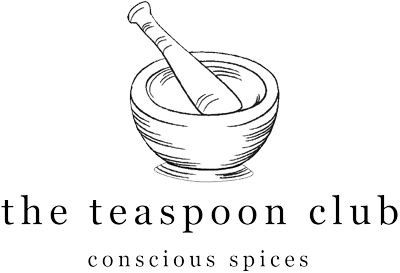The Complete Guide to Mushrooms
Mushrooms are having their moment in our new blog. We're covering a whistlestop tour of their anatomy, consuming mushrooms, growth and their future, plus some resources if you want to keep learning.
Anatomy
Mushrooms are neither plant nor animal, but rather a wonderful fungi. What we tend to eat on a mushroom is the cap and stem, which is really the fruit of the fungus. It generally only exists for quite a short period time, when its mission is to spread spores at the end of the mushroom’s life cycle to generate replication. Mushroom caps come in all kinds of varieties, with different shapes, though some really unusual mushrooms look quite distinct to this (like lion's mane, pictured below).
Underneath caps there's also a host of variety, from gills, pores, teeth and ridges. The underneath is often a great way to identify mushroom varieties, and can give some insight into how spores are released. Dispersion includes some fascinating techniques- like clouds released from one pore at the top of a mushroom cap to spores ejected from the underside of the cap.
Below the stem, mushrooms comprise of mycelium. They act a little like roots, but they breakdown the waste and dead matter around them to absord it as nutrients. These networks, made from miniscule hyphae, can spread out for miles!

Adaptogens
Adaptogenic mushroom is a term you may have heard a lot recently. It refers to specific types of functional mushrooms and their ability to provide potential health beenfits. Whilst research remains limited, there is some research to suggest they 'may be beneficial in the treatment and management of neurodegenerative diseases and potentially even for Alzheimer’s' (source: BBC Good Food).
Their potential medicinal properties have led to a huge increase in the awareness and availability of adaptogenic mushrooms, with some of the most common including: Chaga, Cordyceps, Reishi, Lion's mane, Ashawagandha, Shiitake, and Turkey tail.

Consumption
Mushrooms strong unami flavour and meaty texture makes them a really valuable ingredient in so many recipes. For people looking to eat less meat, they can be a brilliant substitute, with their rich and deep flavour allowing them to be the main feature of any dish with ease.
With the growing recognition of mushrooms and their powers, options to consume them has definitely increased. Powders, capsules, tinctures (drops) and gummies are all available from many stores with lots of options to suit your habits. We're fans of the powders- adding a bit of ashwagandha or lion's mane to some hot milk at night is a relaxing way to end your day. As with most supplements, quality really matters, and so with any of these products it's always worth doing a bit of research to see what's really in the bottle.

Growing mushrooms
When it comes to growing mushrooms, they have a host of environmental benefits for the organisms around them and are an esssential part of any ecosystem. A recent report from the Mushroom Council suggests they use less water, space, and electricity than many other agricultural crops, and that 'up to 1 million pounds of mushrooms can be produced on just one acre'! They also consume hard to break down waste matter, produced by other organisms, and they've even been shown to purify water! They're an extremely powerful part of nature sitting at the heart of many ecosystems.
Whilst growing your own mushrooms might sound a bit daunting, the process is a really remarkable and mesmerising one as you watch the complex system evolve. To make things a little easier, there are some great 'grown your own' kits available, including Merryhill mushrooms kits here and Sutton's kits here. They can be a great way to get started- whatever your available space!
The Future
The power of mushrooms knows no bounds! With innovative products coming to market, some of our highlights have to be mushroom leather being used by Stella McCartney and mushrooms as a replacement for styrofoam being trialed by IKEA. The future of mushrooms looks promising!

Learn more
If you've enjoyed reading about mushrooms and are feeling curious to learn more, we have some resources below we'd recommend.
If you're interested in tracking some of the scientific research around mushrooms, the Mushroom Council is a good place to start!
If you're thinking about switching up the way you consume your mushrooms, check out Mushroom Revival.


